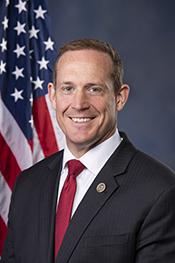0
Building Chips in America Act of 2023
10/5/2024, 11:03 AM
Summary of Bill S 2228
Key provisions of the bill include funding for research and development in semiconductor technology, as well as grants and tax incentives for companies that choose to build or expand semiconductor manufacturing facilities in the US. The bill also includes measures to strengthen supply chain security and resilience, in order to prevent future chip shortages.
Supporters of the Building Chips in America Act argue that increasing domestic production of semiconductor chips is crucial for national security and economic competitiveness. They believe that investing in semiconductor manufacturing will create jobs, boost innovation, and reduce reliance on foreign suppliers. Opponents of the bill raise concerns about the cost of implementing the proposed measures, as well as the potential impact on global trade and supply chains. They argue that government intervention in the semiconductor industry could distort the market and lead to inefficiencies. Overall, the Building Chips in America Act of 2023 is a significant piece of legislation that seeks to address the current challenges facing the semiconductor industry in the United States. Its success will depend on the ability of lawmakers to balance the competing interests of national security, economic competitiveness, and free market principles.
Congressional Summary of S 2228
Building Chips in America Act of 2023
This bill modifies and limits the review of certain semiconductor (i.e., microchip) projects under the National Environmental Policy Act of 1969 (NEPA) and the National Historic Preservation Act (NHPA).
Specifically, the bill exempts from NEPA and NHPA specified semiconductor projects that receive financial assistance under the William M. (Mac) Thornberry National Defense Authorization Act for Fiscal Year 2021.
Next, the bill allows the Department of Commerce to serve as the lead agency for the review of a semiconductor project that receives such financial assistance but is not exempted from review under NEPA. A single environmental document and joint record of decision must be prepared for a semiconductor project. In completing the environmental review, Commerce may adopt a prior study or decision under certain circumstances. The bill also allows a state to assume the responsibility of an environmental review under NEPA for a semiconductor project.
Finally, the bill sets a statute of limitations for certain claims under NEPA.
Current Status of Bill S 2228
Bipartisan Support of Bill S 2228
Total Number of Sponsors
1Democrat Sponsors
1Republican Sponsors
0Unaffiliated Sponsors
0Total Number of Cosponsors
10Democrat Cosponsors
2Republican Cosponsors
6Unaffiliated Cosponsors
2Policy Area and Potential Impact of Bill S 2228
Primary Policy Focus
Environmental ProtectionPotential Impact Areas
Alternate Title(s) of Bill S 2228
Comments

Finn Garner
1 year ago
I think this bill is great cuz it will help make more computer chips in America instead of relying on other countries. This will create more jobs and boost our economy. Do you know how many new jobs this bill is expected to create?

Quincy Fischer
1 year ago
Excited for the new chip act, gonna be great for American jobs! #BuildingChipsInAmerica





